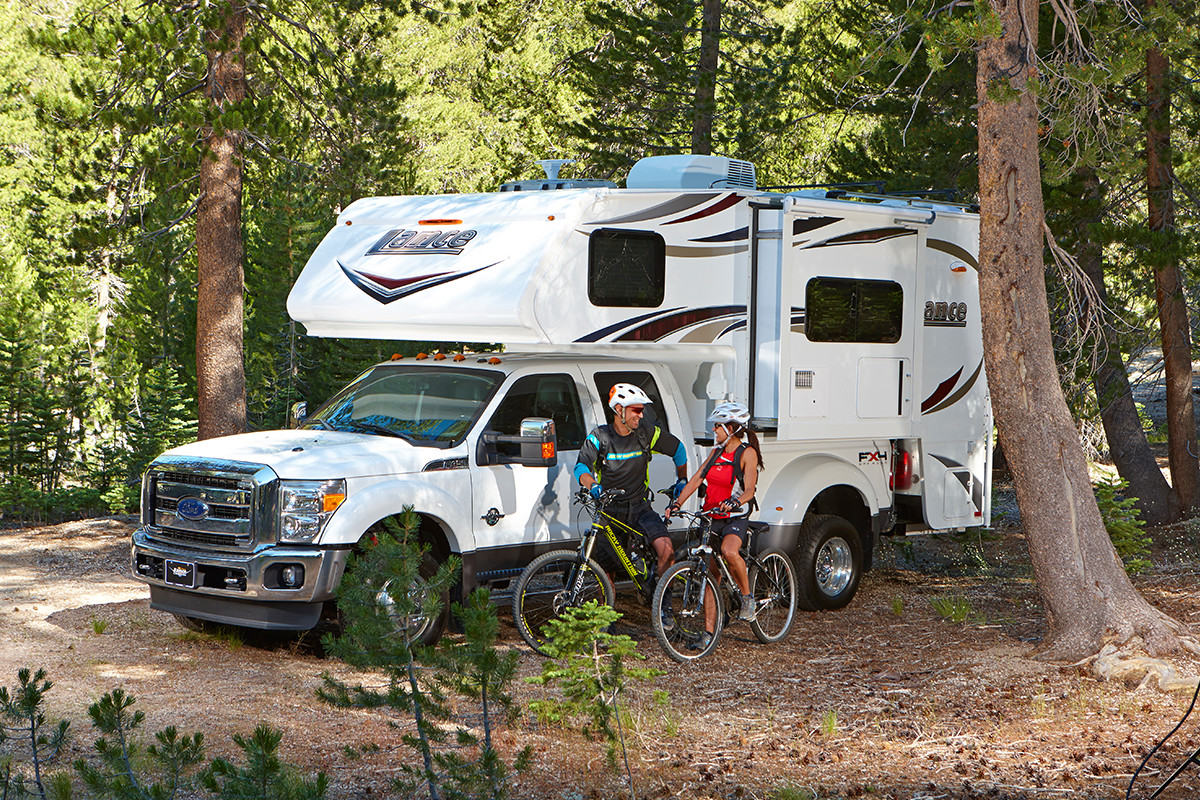There’s a lot of hype around certain types of RVs for different reasons: large-scale motorhomes with every bell and whistle, pop-up campers ideal for family campouts, all-in-one camper vans that make it easy to get from point A to point B.
But there is another type of RV that doesn’t seem to get the recognition it deserves and yet it’s beloved by campers across America: the truck camper. This humble, compact, and portable unit is designed to sit onto or affixed to the bed or chassis of a pickup truck.
Truck campers can sleep up to six. That’s right, six. Although a popular choice for couples, truck campers can range in size from 8 to 20 feet, and much of that compact space can be expanded with the strategic use of slide-outs to maximize the living room area.
Truck campers just need… a truck. Well, you need the right kind of truck to handle the weight of the truck camper. You can usually find a truck camper that will fit the payload capacity, center of gravity, and fit of your existing truck. But if you’ve got your eye on a certain unit, then do your due diligence to ensure that your current truck will do the job well, or consider buying a new truck. If you don’t have a truck yet, and know you’ll be wanted a truck camper in the future, make your choice with that in mind. As with most things, it pays to do your research.
Truck campers make it easy to leave – and camp – in a jiffy. Truck campers are ideal for getting someplace quickly and have a place to stay when you get there. Imagine a family emergency in which you need to get to a relative’s home but they have nowhere to stay in the house. You can easily stay in the truck camper. And as for a scenario when an evacuation is necessary because of a natural disaster, a truck camper makes it easy to get on the road. Plus, since a truck camper fits nicely on top of a truck, you don’t need to worry about towing a trailer.
Truck campers have options. Hard side or pop-up? There are pros and cons to both. Pop-ups are lower profile, lower weight, and lower center of gravity. Hard side truck campers usually have better insulation and storage as well as more floor plan and slide-out options. Pop-ups can go off road better than hard side campers. Depending on your budget, too, you can find a truck camper at a price-point that aligns with your financial expectations. Consider your needs for insulation (warm climate, cold weather camping?) and isolation (do you ever want to boondock?) in your decision making.
Truck campers are efficient and versatile. There’s no additional tow vehicle or toad needed. You can “unload” your truck camper and leave it at the site and take the truck to other destinations. They don’t require additional fuel for travel. They are durable and offer many of the comforts of other RV types, but packaged to fit on the back of a truck bed.
Truck campers have less to maintain. It’s not a separate unit that trails behind (think: tires and bearings) or one that requires an engine. There are fewer mechanical components that can break within its design, too.
As additional information, in Michigan, truck campers do not need to be registered, but they do need to be titled and require a manufacturer’s serial number or a number permanently assigned by the Secretary of State to be affixed to the pickup camper (Source: RVIA 2017).

